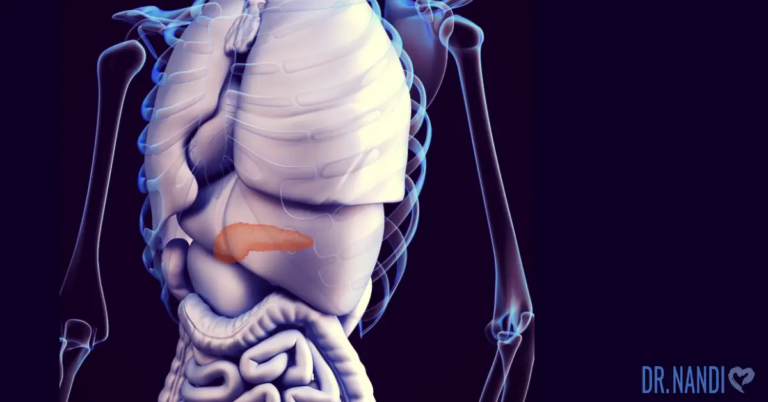Fasting benefits have once again captured the spotlight in the realm of health and wellness, thanks to groundbreaking research that reveals its profound impact on cellular regeneration. Traditionally seen as a method for spiritual cleansing and weight management, fasting is now being recognized for its ability to rejuvenate the body’s most fundamental units of life: stem cells.
This intriguing discovery, particularly focusing on the intestinal stem cells of mice, suggests that a mere 24-hour fast can significantly enhance the regenerative capabilities of these cells, regardless of age. This finding not only enriches our understanding of fasting’s health benefits but also opens new avenues for medical interventions aimed at improving tissue repair and longevity.
The Mechanisms of Fasting: Unveiling Cellular Transformation
Delving into the mechanisms behind the fasting benefits reveals a fascinating journey of cellular transformation. When the body enters a state of fasting, it’s not merely taking a break from digesting food; it’s actively switching its energy sources in a way that promotes cellular rejuvenation and healing. This process begins with a critical shift in metabolic activity, where cells reduce their reliance on glucose derived from carbohydrates and instead turn to fatty acids and ketone bodies for energy. This shift is not just about conserving energy but about optimizing the body’s internal environment for repair and growth.
The impact of fasting on stem cells, particularly those in the intestine, underscores the remarkable adaptability of our cellular systems. These intestinal stem cells are crucial for maintaining the lining of the gut, a barrier that is constantly renewed throughout our lives. With age, the regenerative capacity of these cells typically declines, leading to a host of digestive and systemic health issues. However, fasting has been shown to counteract this decline, enhancing the stem cells’ ability to regenerate regardless of the individual’s age. This rejuvenation is attributed to the cells’ switch to fat burning, which appears to stimulate a more youthful state of cellular function.
Researchers pinpoint the activation of specific transcription factors as a key element in this process. These proteins, essential for converting DNA into the RNA that guides protein synthesis, play a pivotal role in the metabolic switch observed during fasting. Their activation leads to increased efficiency in burning fatty acids, which in turn supports enhanced regenerative capacity of the cells. This discovery not only highlights the direct benefits of fasting on cellular health but also opens the door to potential therapeutic strategies that mimic the effects of fasting, offering hope for interventions that could help maintain tissue health and function across the lifespan.


Cancer Prevention: Fasting’s Role in Cellular Defense
The connection between fasting benefits and cancer prevention is gaining attention in the scientific community, offering a new perspective on how dietary interventions can influence our body’s natural defenses against disease. The mechanism through which fasting contributes to cancer prevention may be rooted in its ability to enhance the body’s autophagy processes. Autophagy, a critical cellular cleanup process, involves the breakdown and removal of damaged and dysfunctional cellular components. By promoting autophagy, fasting helps in maintaining cellular integrity and preventing the accumulation of potentially carcinogenic cellular debris.
Fasting’s impact on inflammation reduction is another vital aspect of its cancer-preventive properties. Chronic inflammation is a known risk factor for the development of cancer, and fasting has been shown to lower inflammation levels, thereby reducing the risk of cancer initiation and progression. This anti-inflammatory effect is partly due to the decrease in the production of pro-inflammatory cytokines and the enhancement of anti-inflammatory pathways within the body during fasting periods.
Moreover, fasting influences the hormonal environment in ways that can deter cancer growth. For instance, reduced levels of insulin and insulin-like growth factor 1 (IGF-1) during fasting periods are associated with decreased cancer risk. These hormones, when present in high levels, can promote cancer cell proliferation and survival. By modulating the levels of these and other growth factors, fasting could potentially slow down the growth of existing tumors and reduce the likelihood of new cancer formation.
This promising link between fasting and cancer prevention underscores the potential of dietary strategies in complementing traditional cancer therapies. While more research is needed to fully understand and harness fasting’s anticancer benefits, the existing evidence provides a compelling case for considering fasting as part of a holistic approach to cancer prevention and overall health maintenance.

Heart Health: Fasting’s Influence on Cardiovascular Well-being
The exploration of fasting benefits extends into the realm of heart health, where the practice is increasingly recognized for its positive impact on cardiovascular parameters. Fasting contributes to heart health in several key ways, including the reduction of blood pressure, improvement in lipid profiles, and decrease in markers of inflammation, all of which are critical factors in the prevention of heart disease and stroke. By engaging in regular fasting, individuals may experience a significant lowering of the risk factors associated with cardiovascular diseases.
One of the mechanisms by which fasting supports heart health is through the improvement of lipid metabolism. Fasting periods encourage the body to switch from using glucose to fatty acids and ketones for energy, a process that can lead to reductions in LDL (low-density lipoprotein) cholesterol and triglycerides, known contributors to heart disease. Additionally, fasting can increase levels of HDL (high-density lipoprotein) cholesterol, often referred to as ‘good’ cholesterol, which plays a role in removing other forms of cholesterol from the bloodstream.
Furthermore, fasting has been shown to enhance endothelial function, which is vital for maintaining the flexibility and integrity of blood vessels. A healthy endothelium helps regulate blood pressure and prevent the formation of arterial plaques, thereby reducing the risk of atherosclerosis and other cardiovascular conditions. The anti-inflammatory and autophagic processes induced by fasting also contribute to the maintenance of a healthy cardiovascular system by preventing damage to heart tissue and promoting the clearance of cellular debris that can contribute to heart disease.
Incorporating fasting into one’s lifestyle could, therefore, be a powerful strategy for enhancing heart health and longevity. As research continues to unveil the multifaceted benefits of fasting on the cardiovascular system, it becomes an increasingly appealing approach for those looking to take proactive steps towards maintaining heart health and preventing heart disease.


Enhancing Mental Clarity and Emotional Well-being Through Fasting
Fasting not only has profound effects on physical health but also offers significant benefits for mental clarity and emotional well-being. This practice has been associated with improved brain function, including enhanced cognitive performance, increased neurogenesis (the growth of new neurons), and a strengthened resistance to neurodegenerative diseases. Moreover, fasting can influence mood and mental health, providing a sense of tranquility and emotional balance that contributes to overall well-being.
The neurological benefits of fasting are believed to stem from several key mechanisms. For one, fasting promotes the release of brain-derived neurotrophic factor (BDNF), a protein that plays a crucial role in neuron growth and the maintenance of brain health. Increased levels of BDNF can enhance memory, learning, and cognitive function, and are also thought to offer protection against Alzheimer’s disease and depression.
Fasting also triggers a metabolic switch from glucose to ketone bodies as the primary energy source for the brain, a change that is associated with a number of cognitive benefits. Ketone bodies are more efficient than glucose and provide a stable source of energy that can help enhance mental clarity and focus. This metabolic shift is also linked to a reduction in oxidative stress and inflammation in the brain, factors that are connected to cognitive decline and mental health disorders.
Additionally, engaging in fasting can lead to improved emotional well-being. The practice fosters a sense of discipline and self-control, contributing to greater emotional stability and resilience. Many individuals report feelings of increased calmness and an improved ability to manage stress after adopting fasting practices. This could be partly attributed to the simplification of lifestyle and dietary choices that fasting necessitates, which in turn can reduce the stress and anxiety associated with food choices and eating habits.
As we continue to explore the multifaceted benefits of fasting, its impact on mental health and cognitive function becomes an increasingly important aspect of its appeal. By incorporating fasting into a holistic approach to health, individuals can unlock not only physical health benefits but also significant improvements in mental and emotional well-being.

Fasting Benefits Beyond the Physical: Spiritual and Psychological Growth
The journey through the myriad fasting benefits unveils a dimension that transcends physical health, touching upon spiritual and psychological growth. Fasting has been practiced for millennia across various cultures and religions, not only as a means for detoxifying the body but also for its profound impact on the mind and spirit. This practice encourages introspection, self-discipline, and a deeper connection with one’s inner self, fostering a sense of peace and contentment that complements the physical benefits discussed earlier.
Spiritually, fasting is seen as a time of cleansing and renewal, offering practitioners a chance to step back from the daily demands of life and reflect on personal values, goals, and well-being. This break from routine can lead to increased mindfulness and a greater appreciation for life’s blessings, enhancing one’s sense of gratitude and overall life satisfaction. The act of fasting, by abstaining from food and sometimes other indulgences, teaches control over desires and impulses, leading to greater mental and emotional discipline. This discipline can have far-reaching effects on one’s life, promoting healthier habits and decisions beyond dietary choices.
Psychologically, the benefits of fasting extend to improving stress management and emotional resilience. The challenge of fasting can strengthen the mind, helping individuals develop better coping mechanisms for dealing with stress and adversity. This enhanced resilience contributes to improved overall mental health and well-being. Moreover, the practice of fasting can lead to a more positive body image and a healthier relationship with food, as individuals learn to appreciate the significance of nourishing the body appropriately and mindfully.
Incorporating fasting into one’s lifestyle thus offers a holistic approach to well-being, nurturing the body, mind, and spirit in unison. The benefits of fasting manifest not only in physical health improvements but also in the enrichment of one’s spiritual and psychological landscape, offering a comprehensive blueprint for a balanced and fulfilling life.

My Personal RX on a Healthy Fasting Journey
As a doctor dedicated to the pursuit of holistic well-being, I’ve witnessed firsthand the transformative power of fasting. It’s not just about abstaining from food; it’s a journey towards revitalizing your body, mind, and spirit. Fasting, when approached with mindfulness and preparation, can unlock unparalleled health benefits. Here’s my personal prescription for those embarking on this journey:
- Start Slow: If you’re new to fasting, begin with shorter durations. This allows your body to adjust without overwhelming it.
- Stay Hydrated: Water is your best friend during fasting. Keeping hydrated helps flush toxins and maintains vital bodily functions.
- Mindful Breaks: When breaking your fast, choose foods that are gentle on your system. This is where incorporating Digestive Enzymes as a supplement can be beneficial, optimizing your natural digestive process and supporting healthy digestion.
- Monitor Your Health: Pay attention to how your body responds. Fasting should feel challenging but not detrimental to your health.
- Balanced Nutrition: Focus on nutrient-dense foods that provide your body with essential vitamins and minerals when you’re not fasting.
- Listen to Your Body: If you feel unwell or excessively fatigued, it’s essential to listen to your body’s signals and consider adjusting your fasting regimen.
- Educate Yourself: Use resources like the Gut Health Quiz to understand your gut health better. It’s a fantastic tool for gaining insights into your digestive health and receiving personalized recommendations.
- Consistency is Key: Regular fasting can lead to more significant health benefits over time. Try to maintain a consistent schedule.
- Support System: Share your fasting journey with friends or family members who can offer support and motivation.
- Consult a Professional: Before starting any fasting regimen, especially if you have existing health conditions, consult with a healthcare professional to ensure it’s safe for you.
Embarking on a fasting journey is a profound way to connect with your body and its innate healing capabilities. With these tips and the right tools at your disposal, you’re setting the stage for a healthier, more vibrant you. Remember, the journey is as significant as the destination.
Sources:
1- Researchers look to fasting as a next step in cancer treatment. (n.d.). Cedars-Sinai. https://www.cedars-sinai.org/discoveries/fasting-as-next-step-in-cancer-treatment.html#:
2- Fasting diet: Can it improve my heart health? (2022, October 8). Mayo Clinic. https://www.mayoclinic.org/diseases-conditions/heart-disease/expert-answers/fasting-diet/faq-20058334
3- Rd, R. a. M. (2023, September 22). 8 Health benefits of fasting, backed by science. Healthline. https://www.healthline.com/nutrition/fasting-benefits




















